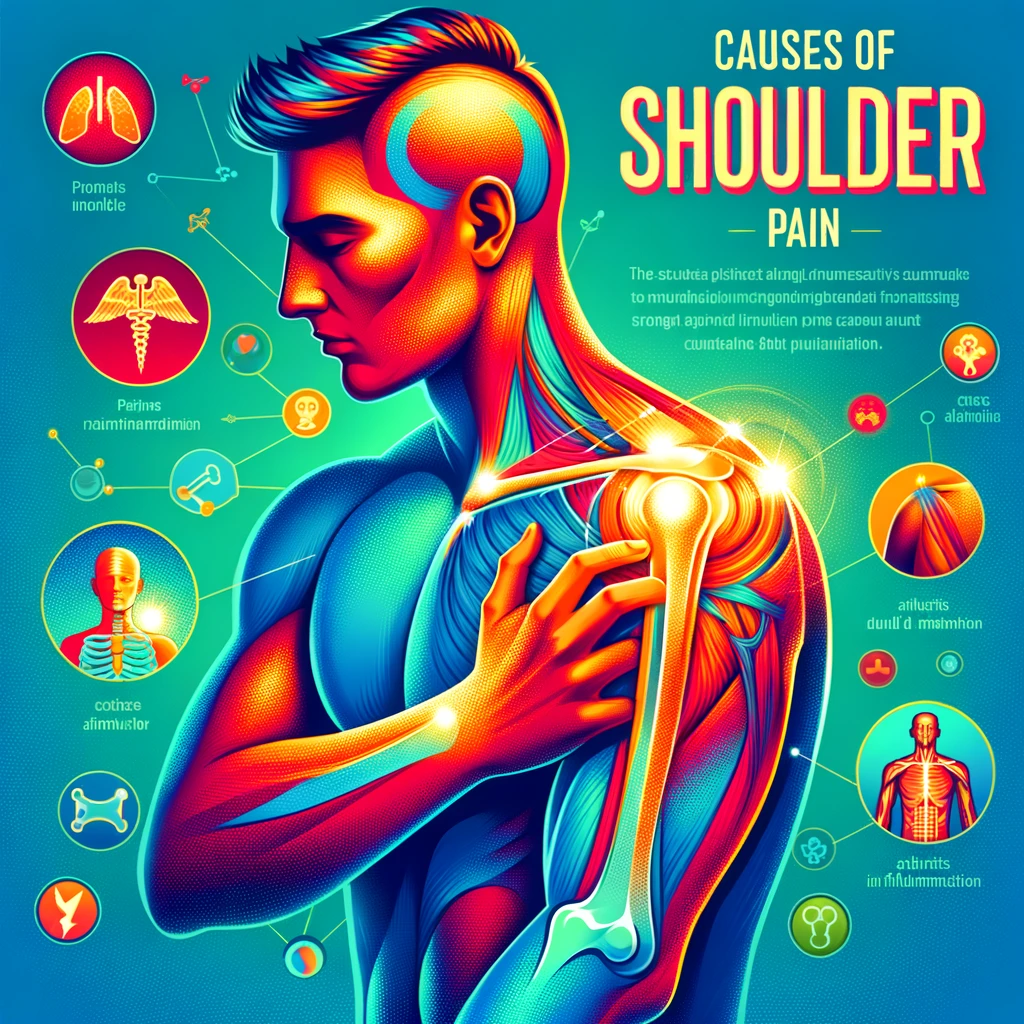
Table of Contents
Shoulder pain is a common issue that affects people of all ages and activity levels. Whether it’s a sharp pain from a recent injury or a chronic ache due to an underlying condition, shoulder pain can significantly impact your daily life. Addressing shoulder pain effectively requires understanding its causes and exploring various remedies for shoulder pain. Let’s dive into the numerous ways you can alleviate shoulder pain and improve your overall well-being.
Understanding Shoulder Pain
To effectively address shoulder pain, it’s crucial to understand the shoulder’s anatomy and the types of pain you might experience. The shoulder is a complex joint made up of bones, cartilage, ligaments and tendons. Pain can arise from any of these components, manifesting as either acute or chronic discomfort.
Over-the-Counter Remedies
Pain Relievers: Over-the-counter medications like ibuprofen and acetaminophen are commonly used to relieve shoulder pain. These medications help reduce inflammation and alleviate pain, making them a go-to option for many sufferers.
Topical Treatments: Creams and gels containing menthol or capsaicin can be applied directly to the shoulder for localized pain relief. These treatments work by numbing the area and reducing inflammation.
Physical Therapy and Exercises
Strengthening Exercises: Building strength in the muscles around the shoulder can provide better support and reduce pain. Exercises like shoulder presses and rows are particularly beneficial.
Flexibility and Stretching Routines: Stretching helps maintain flexibility in the shoulder joint, preventing stiffness and discomfort. Yoga and specific stretching exercises can be highly effective.
Low-Impact Activities: Activities like swimming and cycling are excellent for maintaining fitness without putting excessive strain on the shoulders. These exercises keep the joints moving without causing further pain.
Home Remedies for Shoulder Pain
R.I.C.E. Method: Rest, Ice, Compression, and Elevation (R.I.C.E.) is a time-tested method for reducing swelling and pain after an injury. Applying ice packs and elevating the shoulder can be particularly effective.
Herbal Remedies: Certain herbs, such as turmeric and ginger, have anti-inflammatory properties that can help reduce shoulder pain. Incorporating these herbs into your diet or taking them as supplements can provide relief.
Heat and Cold Therapy: Alternating between heat and cold packs can help reduce pain and inflammation. Heat helps relax muscles, while cold reduces swelling.
Diet and Nutrition
Anti-Inflammatory Foods: A diet rich in anti-inflammatory foods like fish, nuts, and leafy greens can help manage shoulder pain. Omega-3 fatty acids, found in fish, are particularly beneficial.
Supplements for Joint Health: Glucosamine and chondroitin supplements can support joint health and reduce pain. These supplements help maintain cartilage and reduce inflammation.
Alternative Treatments
Acupuncture: This traditional Chinese medicine technique involves inserting thin needles into specific points on the body. Acupuncture can help alleviate shoulder pain by stimulating the body’s natural pain-relieving mechanisms.
Massage Therapy: Regular massage can improve circulation, reduce muscle tension, and alleviate pain. Focusing on the muscles around the shoulder can provide significant relief.
Chiropractic Care: Chiropractic adjustments can help realign the body and reduce shoulder pain. This treatment can be particularly effective if the pain is caused by misalignment or mechanical issues.
Lifestyle Changes
Weight Management: Maintaining a healthy weight reduces the strain on your shoulders. Excess weight can exacerbate shoulder pain.
Proper Posture: Maintaining good posture can prevent shoulder pain. Ensure that your workstation is ergonomically set up to avoid unnecessary strain.
Ergonomic Adjustments: Making ergonomic adjustments to your work environment can reduce shoulder pain. Ensure your chair and desk are at the proper height to avoid unnecessary strain.
Medical Treatments
Prescription Medications: For severe pain, doctors may prescribe stronger medications like opioids or anti-inflammatory drugs. These should be used under medical supervision to avoid side effects.
Injections: Corticosteroid injections can provide quick, temporary relief from shoulder pain by reducing inflammation. Hyaluronic acid injections can help lubricate the joint, improving mobility.
Surgical Options: In extreme cases, surgery might be necessary. Procedures like arthroscopy can repair damaged tissue, while shoulder replacement surgery can provide long-term relief for severe arthritis.
Preventing Shoulder Pain
Injury Prevention Techniques: Learning proper techniques for sports and activities can prevent shoulder injuries. This includes proper lifting techniques and using the right form during exercise.
Proper Warm-Up and Cool-Down: Always warm up before exercising and cool down afterward. This prepares your muscles and joints for activity and helps prevent injuries.
Protective Gear for Sports: Wearing protective gear, like shoulder pads during sports, can protect your shoulders from injury.
Impact of Shoulder Pain on Daily Life
Shoulder pain can significantly affect your daily life, leading to:
Mobility Issues: Pain can limit your ability to lift, carry or even perform simple tasks.
Psychological Effects: Chronic pain can lead to stress, anxiety and depression, impacting your overall well-being.
When to See a Doctor
It’s crucial to seek medical attention if you experience:
- Persistent pain and swelling
- Signs of infection such as redness and warmth
- Loss of function or inability to bear weight on the shoulder
Living with Chronic Shoulder Pain
For those living with chronic shoulder pain, managing the condition is essential. This includes:
Pain Management Strategies: Regular use of pain relief methods and maintaining a healthy lifestyle.
Support Systems and Resources: Joining support groups or seeking counseling can provide emotional support and practical advice.
Conclusion
Effectively managing shoulder pain requires a comprehensive approach, including over-the-counter remedies, physical therapy, lifestyle changes, and medical interventions. Understanding the underlying causes of your shoulder pain is crucial for choosing the right treatment options. By incorporating preventive measures, such as proper warm-ups, maintaining good posture and using ergonomic adjustments, you can reduce the risk of shoulder pain. If pain persists or worsens, seeking professional medical advice is essential. Taking a proactive approach to shoulder health can help you maintain mobility, reduce pain and improve your overall quality of life.
FAQs
What is the best over-the-counter remedy for shoulder pain?
Ibuprofen and acetaminophen are commonly used to relieve shoulder pain. Always follow the dosage instructions on the packaging.
Can exercise really help reduce shoulder pain?
Yes, regular exercise strengthens the muscles around the shoulder, providing better support and reducing pain
Are there any natural remedies for shoulder pain?
Yes, natural remedies like turmeric, ginger, and the R.I.C.E. method can help alleviate shoulder pain.
When should I consider surgery for shoulder pain?
Surgery should be considered if other treatments have failed and shoulder pain significantly impacts your quality of life.
How can I prevent shoulder pain during sports?
Use proper techniques, wear protective gear, and always warm up before engaging in sports activities.


